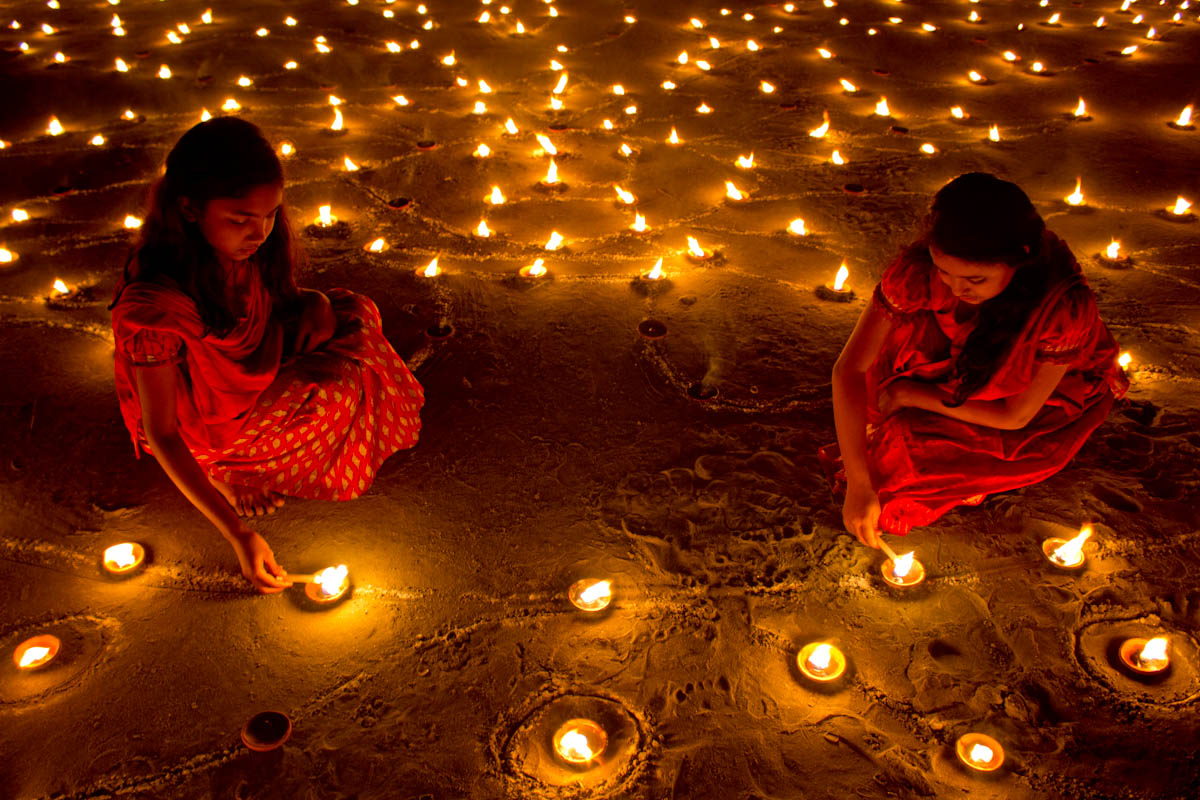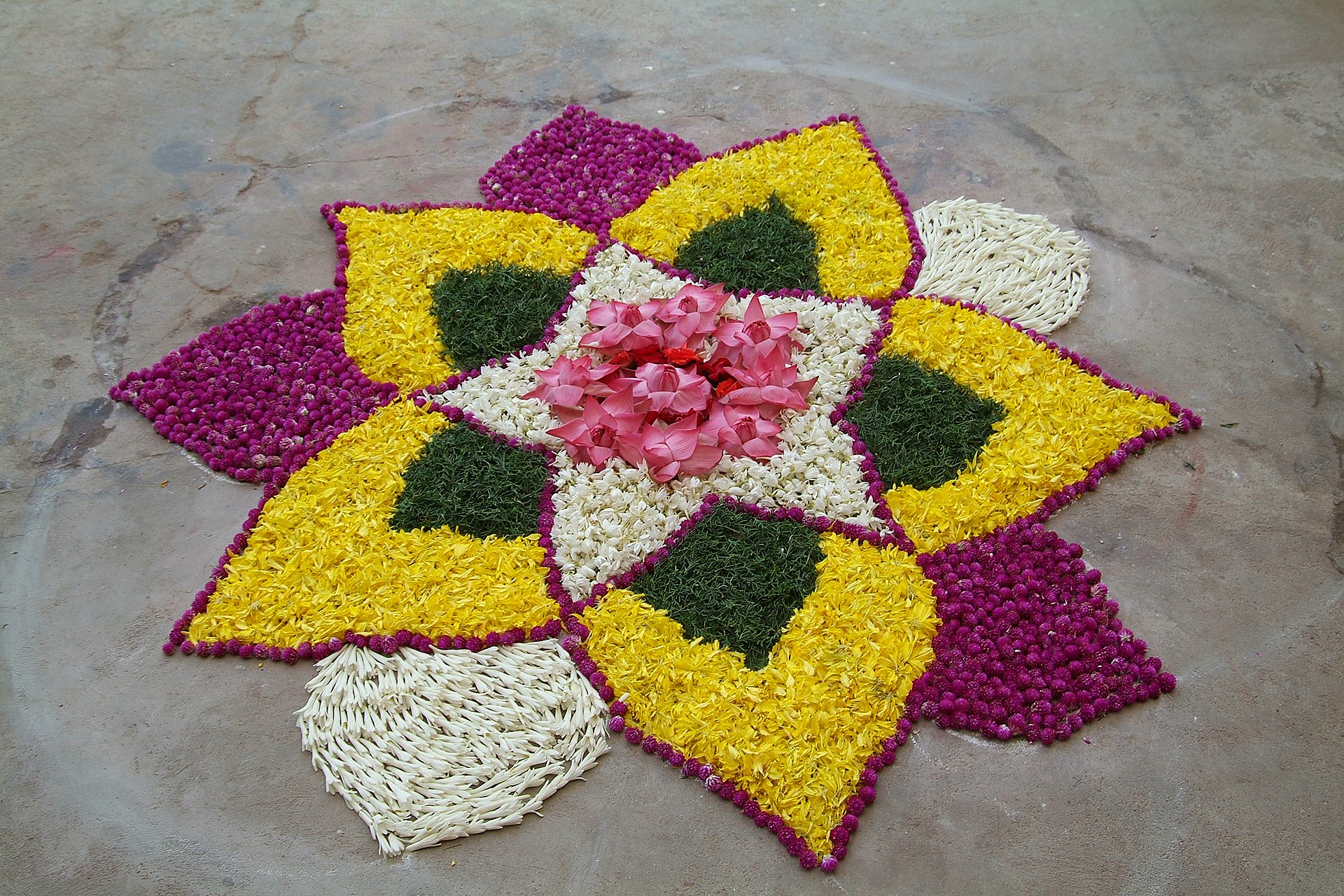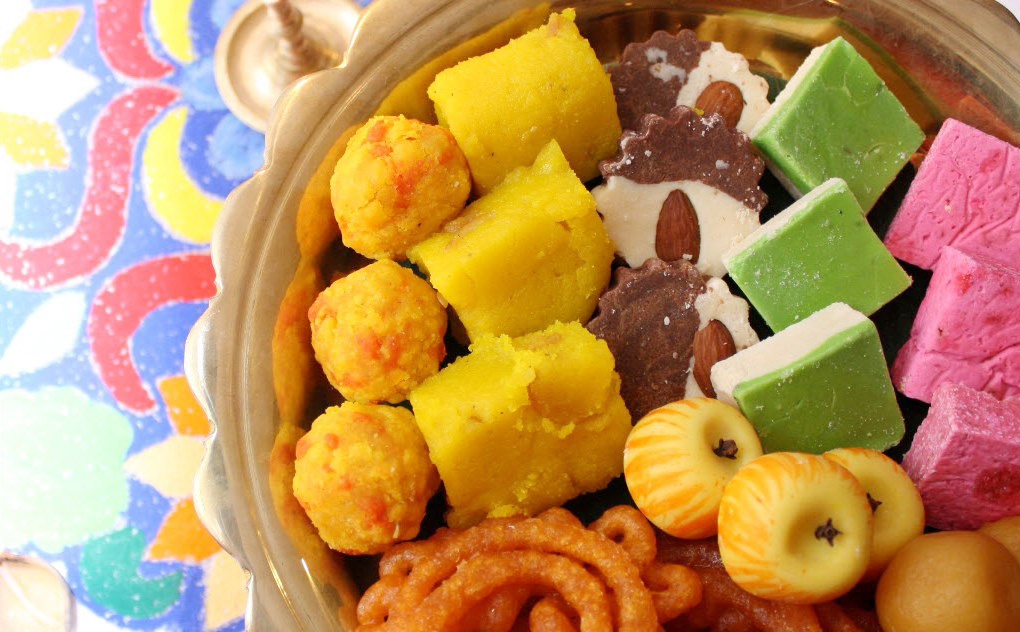
Every fall, over a billion Hindus, Sikhs, and Jains worldwide celebrate Diwali. The five-day festival, which commemorates the triumph of good over evil, is India's biggest holiday. The ancient festival's date is based on the Hindu lunar calendar and differs annually. This year, Deepavali, or the Festival of Lights, as it is also called, will be observed from October 22nd to October 26th.
The fun begins with Dhanteras, a day dedicated to the deities of wealth. The occasion is marked with prayers for the prosperity, success, and well-being of loved ones. Many people also decorate the entrances of their homes and businesses with colorful lanterns and traditional temporary designs, or "rangoli." Making a purchase on this day is considered auspicious, and observers often treat themselves to beautiful jewelry, clothing, or household goods.
The festival's second day is called Kali Chaudas, or Narak Chaturdashi. For some, it is a day to drive away demons or evil spirits from homes with traditional rituals. Others think of it as "Choti (small) Diwali" and use it as an excuse to start the celebrations early with feasts and fireworks. Regardless of their beliefs, everyone looks forward to Diwali on the third day.

Diwali celebrations begin early with a visit to a place of worship, such as a temple. Families and friends then get together to exchange gifts and sweets. At sunset, observers worldwide light up their homes with glittering small oil lamps, or "diyas," and share a delicious meal with loved ones. For the residents of India, the real fun begins late in the evening when entire neighborhoods take to the streets to light up the skies with colorful fireworks. The spectacular show continues until every last firecracker has exploded.
There are numerous folklore associated with the ancient festival. Some believe that the residents of Ayodhya first celebrated Diwali to mark the return of King Rama, his wife Sita, and his brother Lakshmana from a 14-year exile ordered by the king's mother. Others think the celebration marked the taming of an angry goddess who had been on a rampage that threatened to wipe out every living creature on Earth.

For the residents of the western states of India, like Gujarat, Diwali marks the end of the calendar year. On October 25, 2022, they will welcome the first day of the year 2079. The 57-year gap between the Hindu and the Gregorian calendar is due to their use of shorter lunar cycles. In India's northern states, the fourth day is set aside to honor the Hindu god Lord Krishna. The fifth and final day of the festival celebrates the bond between brothers and sisters. It is marked with prayers and more delicious food.
For children in India, Diwali is similar to Christmas. In addition to a week off from school, they are also treated to gifts, new clothes, good food, and fireworks. It is no wonder that the festival ranks high among the country's favorite celebrations.
Resources: nationalgeographic.com, livelearn.ca, wikipedia.org, history.com
